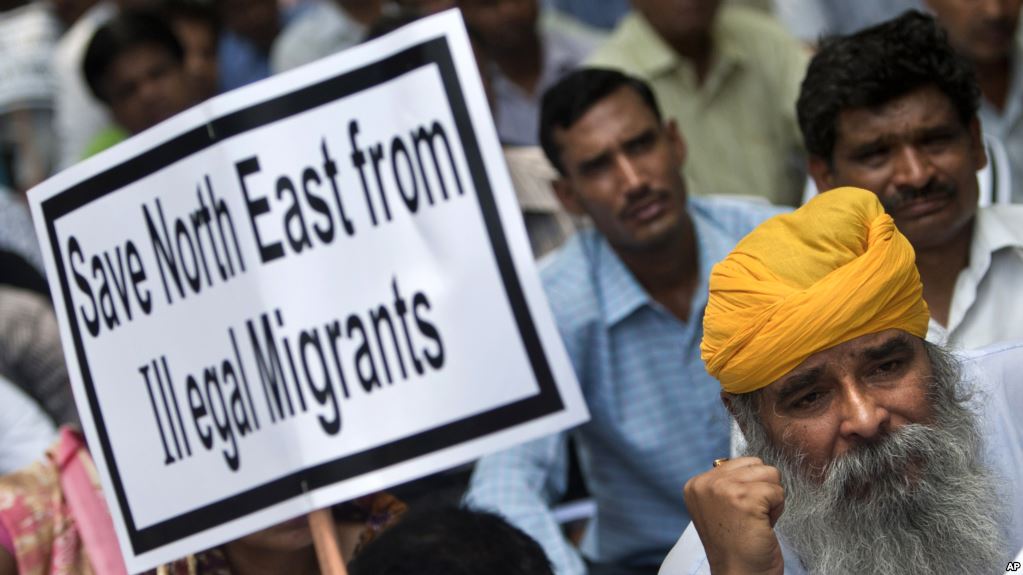The Zero Cost Mission/The Wily Agent is a book written by a former officer of the Research and Analysis Wing (RAW), Amar Bhushan. The book gives an insight into the problems posed by illegal immigration from Bangladesh in the 1990s. The book also talks about how the RAW had tackled the threat posed by illegal immigration which was being conducted at the behest of Pakistan Inter-Services Intelligence (ISI). Annoyed by the loss of East Pakistan, today known as Bangladesh, ISI had taken the help of Jamaat-e-Islami to push migrants into India. By pushing illegal migrants into Indian territories of Bengal and the North-Eastern states, Pakistan and ISI hoped to bring about a split in India along religious lines. Radicalised masses of Islamic migrants were pushed into the Indian side of the border, specially in border areas of West Bengal and Assam. The aim was to eventually Islamicize the areas and take it by force on a later day with a sudden attack. RAW had been successful in eliminating threat to India while maintaining utmost secrecy. RAW had also been successful in stopping the ISI backed forces from creating a separate state or merging Indian states with Bangladesh.
There are two ways to attack a culture, civilization or a country; one is to systematically attack and dominate it and force another set of values on it, which is usually done through waging a war. The second method is to slowly but surely break the society by adding another set of values to it gradually, this is a covert operation and it usually takes a lot of years and even decades to happen. Both of these are equally dangerous and harmful but the second method is harder to diagnose and it is equally difficult to assess the damage caused by these gradual attacks.
This is precisely what the book talks about, that the Pakistan and ISI have been frustrated with the liberation of Bangladesh at the hands of the Indian forces. The loss of East Pakistan was a national embarrassment in Islamabad. Their response was the Islamization of the bordering states of India, Bangladesh and Jamaat-e-Islami by the ISI. Late Bangladeshi leader Sheikh Mujibur Rahman in his book Eastern Pakistan: Its Population and Economics had previously said, “Because Eastern Pakistan must have sufficient land for its expansion and because Assam has abundant forests and mineral resources, coal, petroleum etc, Eastern Pakistan must include Assam to be financially and economically strong”.
This dream of Greater East Pakistan/Bangladesh was shared by many on the side of the Bangladeshi border. The ISI had tapped into the sentiments of these dissatisfied masses and had used them to serve its own goal.
The problem of illegal immigrations in India is still very much present, there are millions of Bangladeshis who are living on Indian soil and enjoy the benefits. There is little doubt over the fact that radicalisation amongst these has indeed taken place and they situations in the coming days might get scary, specially in states like West Bengal where Mamata Banerjee has been proactively supporting illegal immigration. The calls for a separate land for Muslims which was raised by a Maulvi on national television is scary, but the demand had been raised earlier too by factions from Murshidabad in West Bengal. Thanks to RAW and its proactive stance the movement had died down back then.
India needs to learn from its own mistakes and place the safety and security of its own citizens before anything else. The recently released book gives an in depth insight into how the Islamist forces function and the plans for countering them in the future might be found in them. Radical Islam and extremism have wreaked enough havoc around the world, India has by far remained safe from large scale violence and the RAW and other security agencies deserve special applause for that. Steps to curb illegal immigration from Bangladesh must be initiated and should be implemented as soon as possible by the central and state governments. The events described in this book show what could happen if the issue is not dealt with the seriousness which it deserves.
